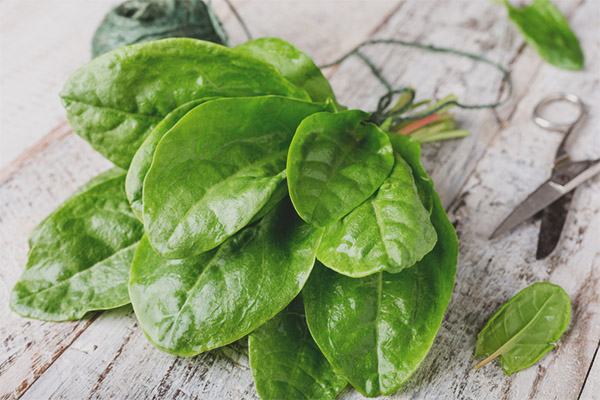https://cdn.steemitimages.com/DQmSvPJBX1LRA2LAC5erHKYwLdooijGMyHq2skh1m9VFZKx/shhavel-vo-vremja-beremennosti.jpg
The sorrel is among the perennial grasses. Sometimes it is perceived as a weed. The sorrel has pale stems and broad lance-shaped leaves. Its taste is different acid and sharpness. [source](https://htgetrid.com/assets/uploads/2018/02/shhavel-vo-vremja-beremennosti.jpg)

Sorrel is grown and used in medicine and cooking. The sorrel can be added to soups, salads, meats, spices, sauces and even jams. Its sour and sharp taste, reminiscent of kiwi and strawberries, makes the dishes original. In sorrel we found a lot of fiber, but not enough fat and protein. The composition has flavonoids, anthocyanins and polyphenolic acids, vitamins A, C, B6, B2 and B9, and minerals: Iron, Magnesium, Manganese, Copper and Calcium. The rich composition of sorrel makes it useful for human health. The normalized use of this plant has a positive effect on almost all systems of the human body. The sorrel strengthens the musculoskeletal system. Vitamin A accelerates bone growth. Vitamin C synthesizes collagen, essential for bone development. Even a small amount of calcium in sorrel is good for the body. Calcium deficiency leads to the formation of osteoporosis and worsens the condition of the teeth. Sorrel is a natural source of potassium, which dilates blood vessels. He keeps the balance of fluids in the body; reduces the load on the cardiovascular system; relaxes blood vessels and arteries; reduces the risk of coronary heart disease. Vitamin A in sorrel improves vision, prevents macular degeneration and the development of cataracts, and also maintains visual acuity, which worsens with age. Sorrel leaves are used to treat respiratory diseases and infections. They are a remedy for sore throat, bronchitis and sinusitis. The tannins in sorrel have an astringent effect, protect the upper respiratory tract from infections and dry the mucous membrane. Sorrel reduces the risk of diabetes due to organic compounds and anthocyanins. Sorrel helps cope with disorders of the digestive system, due to fiber. Sorrel is used as: diuretic - to remove excess water from the body; laxative - to treat diarrhea; edicamento for constipation and prevention of stomach upset. The health of the kidney and the urinary system can be adjusted with the help of sorrel. It has a diuretic effect and stimulates urination. The sorrel clears the kidneys and the urinary tract, eliminating water, salts, toxins and some fat. The regular consumption of sorrel prevents the formation of kidney stones and their growth. The leaves and stems of sorrel have astringent, refreshing and acidic properties, so the plant is used for the local treatment of skin diseases and warts. The sorrel eliminates rash, itching, irritation and the consequences of ringworm. Iron, which is part of sorrel, helps produce red blood cells. It is useful for hair growth and rapid wound healing. The anti-allergic and antimicrobial properties of sorrel protect the skin, and vitamins A and C decrease the formation of wrinkles. The antioxidants in the sorrel stop the transformation of healthy cells into cancer. Sorrel - a prophylactic against cancer. The vitamin C in sorrel is good for the immune system. It increases the amount of leukocytes and helps fight viruses and bacteria. Sorrel is better to buy or tear the day when you want to eat it. With long-term storage, sorrel leaves lose not only their structure, but also their useful properties. When selecting pay attention to the appearance of the leaves. They should not be lethargic or discolored. Traces of damage indicate a product of poor quality. The fresh sorrel leaves are green, elastic and even.

Originally posted here: https://steemit.com/naturalmedicine/@nashilda17/the-sorrel-and-its-benefits


No comments:
Post a Comment